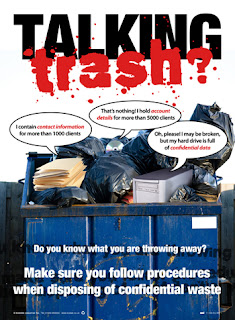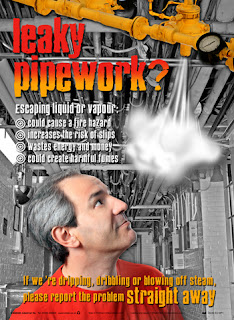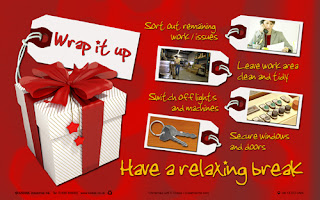 |
| 1 |
 |
| 2 |
 |
| 3 |
The security of your workplace is vital to the safety of your employees, the security of your goods and the continued confidentiality of sensitive and classified information.
Here are six general security risks your employees should be aware of.
1. Unsecured access points
Doors or windows left open and unsupervised could be an invitation to opportunistic thieves – particularly if there are desirable goods on view inside.
Your employees can help to avoid tempting thieves by closing windows and doors they have opened and not leaving access points vulnerable.
2. Valuables on display
Opportunistic thieves will be looking for things that are easy to steal and inconspicuous to carry. Employees' personal valuables, such as wallets, handbags and mobile phones, which are often left on and under desks, are particularly at risk. Laptops, netbooks and other portable technologies are also vulnerable, as are goods left unsupervised near open doors.
Employees can help themselves by securing their valuables or hiding them from view – not just inside the workplace building, but also in their cars parked outside. They can also help you by dealing with deliveries as soon as they arrive and not leaving consignments unattended.
3. Strangers on site
Employees should always be alert for people they don't recognise wandering about on site.
Intruders who enter your premises with malicious intent are unlikely to dress conspicuously. They may be dressed to blend in, wearing clothes that mirror your employees' workwear, as tradespersons under the pretence of carrying out work, or officially, in smart suits, to deter any questions.
As an employer, you can help your staff by keeping them informed. You can make sure new or temporary staff are formally introduced to the workforce. You can also let the relevant employees know when tradespeople or official visitors will be on site.
Employees should be encouraged to be alert for suspicious and unidentified persons who may pose a threat to security. They can either challenge them directly or report them to a manager, depending on the situation.
Employees should treat all visitors with courtesy, respect and caution. They should not be worried about challenging an innocent person. Genuine visitors are often reassured to see that your company takes security seriously.
4. Incorrect handling of confidential data
Sensitive information can pose a threat to security if it ends up in the wrong hands. This information includes data such as customer/employee/personal information, account details, usernames and passwords.
Confidential information could be printed and filed or digitally encrypted on computer hard drives and data discs. It should be stored correctly and accessed only by those with relevant authorisation.
While not all of your data will be strictly confidential, there may still be information on site that you would not want to disclose to people outside the workplace. There should be rules in place to ensure that this data is suitably protected, especially if it is ever to be disposed of.
Make sure your employees know what constitutes confidential waste and how to dispose of it correctly.
5. A relaxed attitude to security
Employees with security responsibilities such as keys, door and alarm codes should take these duties seriously. For example, keys and alarm codes or company addresses should never be carried together and missing keys should be reported straight away.
Care should also be taken with company information. For example, employees should be wary of discussing company business with anyone outside the workplace – you never know who might be listening.
6. Suspicious packages
Any suspicious packages or unattended bags should be treated as a security threat, particularly in public spaces, airports, bus stations and distribution centres.
Employees should be vigilant and report anything they find immediately so that the appropriate action can be taken.
Our extensive database includes posters on all kinds of security issues including lone workers, computer security, key care, cash handling and access control.
If you would like to find out more about how
our posters can help improve security in your workplace, please
get in touch with us.
For daily tips on dealing with common workplace
issues, why not follow us on Twitter.
If you would like to find out how Kodiak posters
can
help your business work smoother, smarter
and safer, please call us on: 01530
456 000
or email us.



















